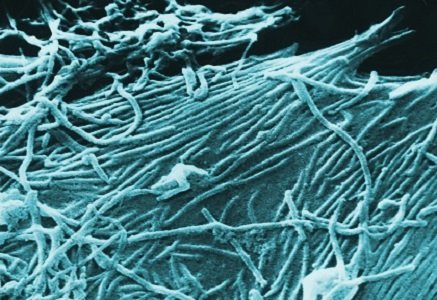(CNN) — At least 729 people have died in Liberia, Sierra Leone and Guinea so far this year as a result of the deadly virus, according to the World Health Organization.
“This is the biggest and most complex Ebola outbreak in history,” Dr. Tom Frieden, director of the U.S. Centers for Disease Control and Prevention, said in a statement.
“It will take many months, and it won’t be easy, but Ebola can be stopped. We know what needs to be done. CDC is surging our response, sending 50 additional disease control experts to the region in the next 30 days.”
Frieden said the 50 experts from the CDC will work to combat the outbreak and help implement stronger systems to fight the disease.
The Ebola virus causes viral hemorrhagic fever, which affects multiple organ systems in the body and is often accompanied by bleeding.
Early symptoms include sudden onset of fever, weakness, muscle pain, headaches and a sore throat. They later progress to vomiting, diarrhea, impaired kidney and liver function — and sometimes internal and external bleeding.
Though the U.S. had not treated an Ebola patient until last week, the CDC has spearheaded efforts to prepare for the deadly virus.
It helped create an isolation unit at Emory University Hospital, which is being used to treat American doctor Kent Brantly, who contracted Ebola in Liberia and was evacuated to the facility in Atlanta over the weekend.
A second American patient, Nancy Writebol, is scheduled to arrive from Liberia on Tuesday. She will undergo treatment at the same unit.
Emory is one of four U.S. institutions capable of providing such treatment.
But in the nations hardest-hit and not as prepared, the reality is grim. Even in the best-case scenario, it could take three to six months to stem the epidemic in West Africa, Frieden said.
Ebola spreads through contact with organs and bodily fluids such as blood, saliva, urine and other secretions of infected people.
It has no cure, and the most common approach is to support organ functions and keep up bodily fluids such as blood and water long enough for the body to fight off the infection.
So far, the outbreak has been confined to West Africa. And it has affected health care providers as well.
Ebola claimed the life of a medical director at a hospital in Liberia’s capital, Monrovia. Dr. Patrick Nshamdze tested positive July 29 after being sick for two weeks, and died Saturday.
In Sierra Leone, where government officials have asked citizens to stay away from work, the military has deployed at least 750 medical officials to 13 locations, military spokesman Col. Michael Samura said.
Health officials are screening incoming and outgoing passengers at the country’s main international airport with a device that takes people’s temperature from their eyes at a distance.
Anyone showing signs of fever is taken away to have their blood tested for Ebola.
CNN’s David McKenzie contributed to this report from Freetown, Sierra Leone. CNN’s Nana Karikari-apau and Christabelle Fombu contributed to this report.
